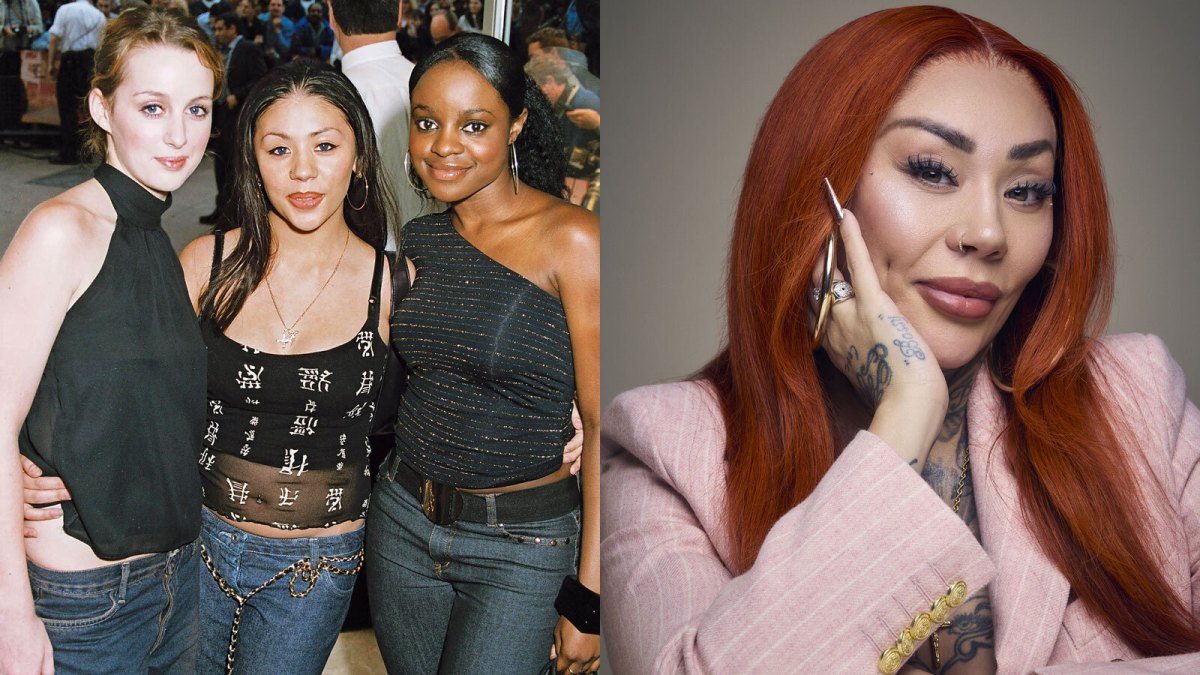In the first few years of the century — arguably the apogee of celebrity culture, captured by the paparazzi and curated by Heat magazine — three teenage girls from north London become one of the most successful British bands in history. Over a decade, Sugababes delivered a steady stream of stone-cold bangers, from their sophisticated debut, Overload, in 2000, to future classics Round Round, Hole in the Head, Push the Button and About You Now.
But it was messy, with a constant carousel of band members either quitting or being forcibly replaced by management. By the time Sugababes went on “hiatus” in 2011, not one of the original line-up — Mutya Buena, Keisha Buchanan and Siobhán Donaghy — remained in the band.
• My life in a girl band: ‘I was screaming in my hotel room’
So it was on nobody’s bingo card that a quarter of a century after they released their first single aged 15, those three girls who formed Sugababes in their school uniforms — now women in their forties with children of their own — would once again be recording new music and selling out stadium gigs, their appearances at Glastonbury in 2022 and 2024 shutting down stages due to demand, particularly among their ardent new Gen Z fanbase.

Sugababes in 2001
GETTY IMAGES
Buena, 40, has also written a memoir, detailing the odd, lurid life of a very young pop star — the partying and paps, the drugs, drink and hijinks — but also in Buena’s case, some abusive relationships, self-harm, anxiety, depression and suicide attempts. If confirmation were ever needed that the Noughties were a toxic time to be famous and female, Real Girl delivers it, vividly and colourfully.
The day before I am due to meet Buena, the Tory MP Jack Rankin posts a snarky response to Nigel Farage’s photograph of the five current Reform UK MPs with the caption, “Like the Sugarbabes this, can’t keep track of the line-up.” While the insult is rather undermined by Rankin’s misspelling, it is nonetheless symbolic of the band’s current status in the cultural consciousness (even among Tory MPs).
Yet in the lobby of the Hoxton hotel, I almost miss Buena, who is 20 minutes early and sporting a short blonde wig, with apparently none of the moody aloofness of repute. When I finally spot her, in a black T-shirt bearing the slogan “Maneater”, three-inch copper talons and arms and neck bedecked in tattoos, Buena goes straight in for the hug.
• The original Sugababes: ‘There was a lot of trauma for everyone’
“A lot of people thought I was quite rude. I remember getting called a bitch quite a lot. But I really wasn’t. I just didn’t know smiling was a thing,” she insists, when we’ve settled at a table in the restaurant. “I was a teenager — teenagers don’t smile a lot. And I was from northwest London, where people didn’t smile,” she says with a laugh, before wondering aloud whether we should order wine (it’s not yet midday).
Growing up in Kingsbury, the daughter of a Filipino father and an East End/Irish mother, Buena was the fifth of nine children, raised in a “chaotic and rowdy” three-bedroom flat.
Her father was strict — as were her four older brothers — but as the eldest girl, “I was also his princess, so there was nothing I could do wrong.” She played this to her advantage, one of “the wild ones who hung out on the estate smoking weed”.
The one thing she was always serious about was music. Her father was a talented guitarist, and, “We’d all sit around singing — it was like The Sound of Music,” she says, laughing.

Buena performing in 2024
REDFERNS
As a child, Buena performed at events in the Philippine community, “being asked to sing at weddings, funerals, birthday parties”, and spent the weekends at a local stage school. By the age of ten, she’d joined a professional youth dance company and appeared on Michael Barrymore’s TV show singing Whitney Houston’s The Greatest Love of All.
By 11, she’d befriended her fellow performer and future bandmate Buchanan, and was speaking to music managers. And by 13, with the addition of Donaghy, the trio were performing at showcases for music industry executives.
“I do question, sometimes, where our parents’ heads were at,” she reflects today. “I do think it was a young age for that, and I don’t think record labels would want to take that risk now.”
• ‘Labels should pay for therapy’ — the Kooks’ frontman on teen fame
But with risks came substantial rewards: Sugababes signed a lucrative deal with London Records and, at just 13, Buena bought her parents a house with the proceeds. “Now, people sign you for £20,00 to £30,000. Back then, you were getting, like, half a mill,” says Buena. “And houses were a lot cheaper too.”
Overload reached No 6 in the charts, was nominated for a Brit award for best single, and the band appeared on Top of the Pops. But Buena’s memories of those days are hazy, she says. “A lot of things seem very blurry to me. There’s so many things that make me sit down and go, ‘Did that really happen? Am I imagining it? Was I really there?’ I think, being young, taking it all in, everything’s very overwhelming.”
Little surprise, really, given a tour schedule she recently found from the time. “There’s literally one day off on it. In the whole year. And most of that time, we were in Germany anyway. I was practically living in Munich and Frankfurt.
“Some of the adults we dealt with cared more about our worth than our wellbeing,” she says. “As long as we were making money for them, they couldn’t give two shits about what was going on in our heads or our hearts as children.”
Commercial success in the Noughties also attracted the paparazzi, who patrolled London on motorbikes (“Following you all the way to your house”), brought upskirting (“I regularly had photographers taking pictures up my skirt, or trying to, when I was still under 18”) and the casual criticism of women’s bodies. “I felt bullied by the media,” says Buena, who thought there was always someone ready “to write that I was fat or miserable or a mess. There was always someone out there who wanted to put me down in some way. And as a young person, that really stuck with me for many, many years — even when I got into my late twenties and thirties.”
“The sad, undeniable truth was that I hated myself,” she writes in Real Girl. “In fact, there wasn’t a single part of me I celebrated or enjoyed.”
‘I need to constantly upgrade my looks’
All of which goes some way to explaining Buena’s many surgeries. After her first, a breast enlargement, “I was always keen to make improvements.” She next went to Turkey “to get my butt done — the full Kim Kardashian”. Now, “From my breasts downwards, there’s not much of me that’s gone untouched.”
She is unashamed and unapologetic. “People get their teeth done because they don’t like their smile. I think, whatever makes you happy. People — mostly men — on social media are really mean. Now I just block and delete. If I want to get my lips or cheeks or face or body done, I will do it. I don’t tell you what to spend your money on. I do it because I want to feel better within myself.”
And does it make her feel better, the constant “improvement”? “It absolutely makes me feel better,” she says. “There’s nothing wrong with correcting yourself.”
Though she has, she says, “slowed down on it”. In May 2023, after a breast reduction procedure, her blood pressure soared, she had panic attacks and was, she admits, “very scared”. “It put me off to a degree, but not completely. The fear of what might happen hasn’t quite been enough to deter my need to constantly upgrade my looks.”
She insists she wants just one last “correction”. “They’ve put my nipples too high. Where they should be down there, they’re up here,” she says, demonstrating.
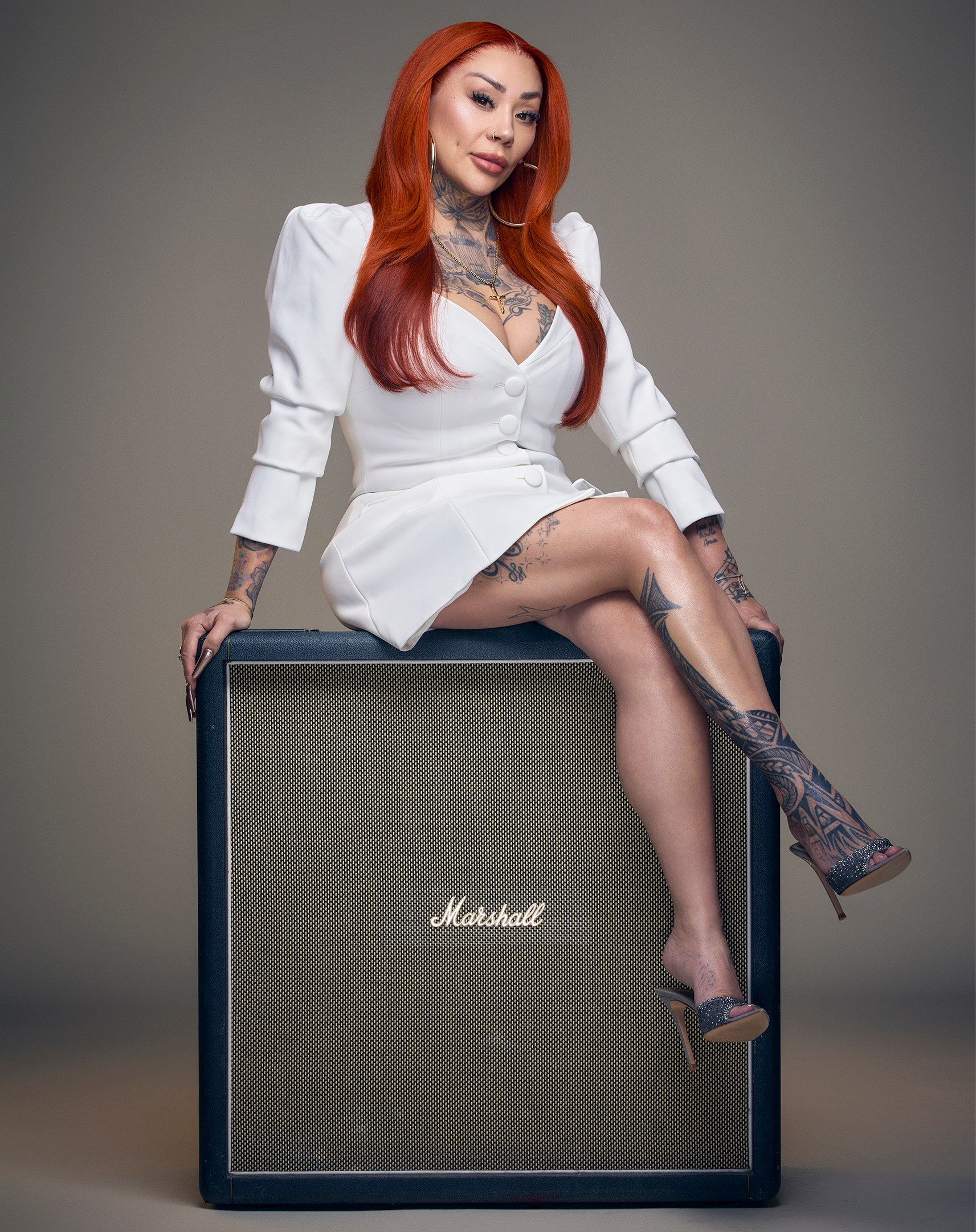
“The sad truth is that I hated myself. Back then, you just didn’t talk about abuse”
ROBERT WILSON FOR THE TIMES MAGAZINE. DRESS, CLUBLLONDON.COM. SHOES, GIANVITOROSSI.COM
Moderation never seems to have much been Buena’s thing. In the early Sugababes heyday, when she’d party until the clubs closed, “Live TV could be rough in the morning”, she says. Due at the studios of SMTV Live or GMTV at 4am, on an hour or two of sleep (and sometimes none at all), “I’d carry a little bottle of brandy in my bag, or tequila. When no one was looking, I’d take a swig and it would perk me right up and help me get through the morning. You’d be surprised how often I was a little buzzed on daytime telly.”
But her partying, she admits, got “a bit out of control”. She would sometimes go missing for days, and, along with drinking, her appetite for drugs grew too. For a time, she’d only get out of bed once it was dark, so she could begin drinking and taking drugs again. And amusing as it is that she self-imposed a ten-year ban on visiting Ibiza, “I felt like there was a real possibility that it was the place I was going to die.”
She does not deny that her excesses surely exacerbated the anxiety and depression she also struggled with, and she admits to self-harm and even suicide attempts. What started as a one-off incident became habitual — whenever she was angry or frustrated, she would cut herself as a release. “I know it sounds weird, but I felt like I could breathe.”
Eventually, after an intervention by her family and bandmates, Buena turned 27 in a therapeutic hospital where she was supposed to “dry out”. With characteristic chutzpah, after gaining the trust of staff, she absconded. “You have to want to get better or it’s not going to work. I wasn’t in that place yet,” she says, with a shrug.
The catalyst for that, eventually, was her daughter, Tahlia, whom she had aged 20. “Having her was the best thing for me. I’ve had to pull myself together — I don’t want my daughter to see me as a drunk, taking drugs… I want to be someone that she can turn to at all times, and be proud of.”
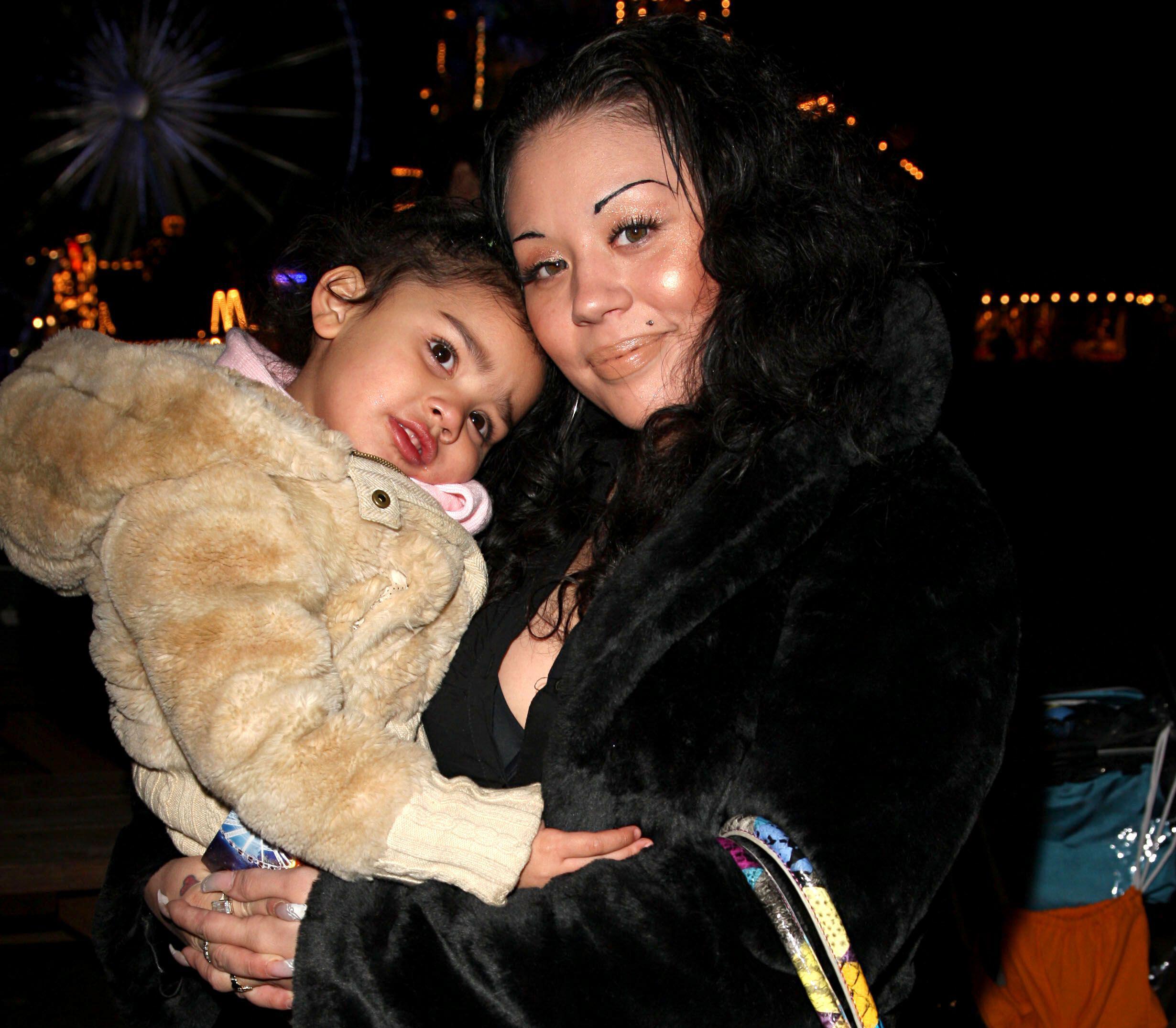
With her daughter in 2008
ALAMY
Two weeks after giving birth, however, Buena was back in the studio. “I’d have just liked a month off,” she says. “All I wanted was a bit of time.” A combination of a punishing pop schedule and undiagnosed postnatal depression became untenable, and in December 2005, Buena quit the band. “I chose my daughter over my career,” she says, simply. “But that’s where my head was at and I don’t regret it.”
Buena, her boyfriend at the time, Jay, and their daughter moved to Hertfordshire, with 18 dogs, six chickens, two snakes, “some” cats, two bearded dragons, an African grey parrot called Tommy and a Shetland pony “that used to come and sit down in the conservatory. I’d feed him carrots while we’d drink our coffees.”
But the transition to a “normal” life held challenges. “The music industry should have more care for their artists — and aftercare,” she says. “How do you get a normal job? How do you do things like direct debits and tax? In a band, you always have an accountant. You have people looking after your stuff for you. And when it comes to looking after yourself, can you actually do it?” Buena speaks from experience — in 2014, after an unexpected £100,000 tax bill, she was forced to declare herself bankrupt and move back in with her parents. “My credit rating was so f***ed I couldn’t even rent a place.”
Sections of the book were emotionally challenging to write, she says, including an attempted rape — by an older man when she was barely 16 and from which she only managed to escape via an open window in his flat — and two abusive relationships, none of which she ever reported. “If something happened to me now, I would talk about it straight away, and I would do something about it. But back then, you just didn’t talk about it,” she says. “Mentally, I was in a low place. You lose yourself. They weren’t nice people and I blamed myself. I don’t any more.”
She is single right now. “It’s quite hard, dating, these days, isn’t it?” she posits. Even being a Sugababe isn’t helpful, it seems. “I did put myself on a few apps, but I got taken off real quick. I think they thought I was — it was — a fake account.”
You want to try Raya, that dating app for famous people, I suggest. “Oh, I’ve got that already,” she says, with a cackle. She’s paused her membership for now though. “I was on it for a while, and I still didn’t find a man with a yacht and a private plane. And I was paying £33 a month. It was expensive, not finding the one.” This is a woman who once racked up a £15,000 taxi bill, sending cars to pick up her friends and bring them to parties.
In 2012, Mutya Buena, Keisha Buchanan and Siobhán Donaghy reformed, to the excitement of fans and the music press alike, but for legal reasons could not use the name Sugababes. “Everyone was like, ‘Who are MKS?’ You realise that having a name is a very big deal. No one wants to hear, ‘Mutya Keisha Siobhán’ — they want to hear Sugababes.” And the name, she says, “was sitting on a shelf, doing nothing”. After years of legal wrangles so extensive and boring Buena refuses to even discuss them, the band won back the rights to Sugababes in 2019. “It feels amazing.”
Buena still enjoys a party, but you’re far more likely these days to find her at home, in her small Buckinghamshire village, where she lives alone (bar the two dogs and four cats). “My going out all the time was because I didn’t want to be at home by myself — I didn’t want to be alone,” she says. “I was always surrounded by people, whether I liked them or not. I’ve learnt to love my own company. I’ve learnt to love myself.”
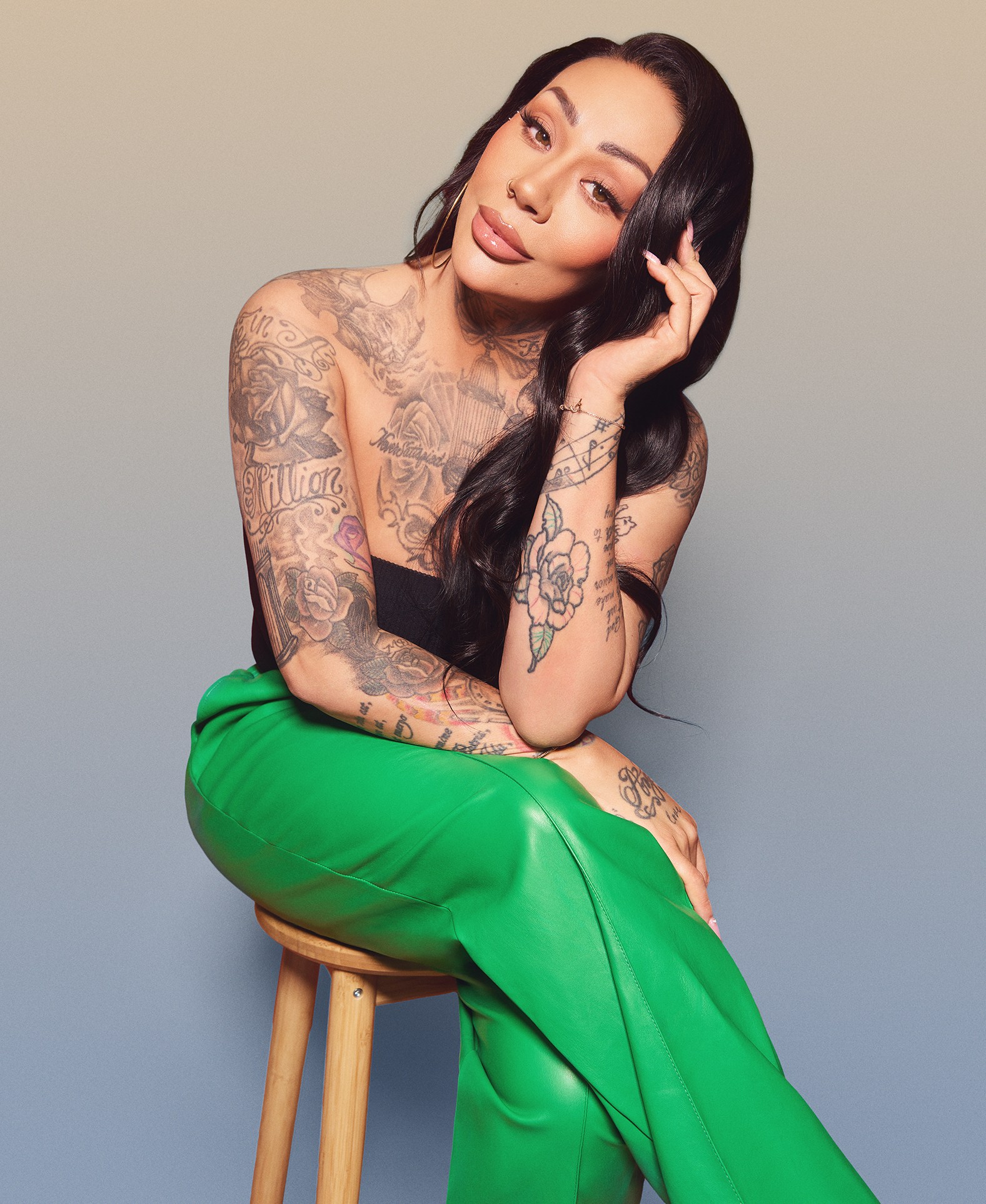 Book extract: ‘I woke up to see a bloody knife on the floor’
Book extract: ‘I woke up to see a bloody knife on the floor’
Mutya Buena describes how, aged 17, her partying descended into depression and self-harm
Slowly, the small amount of control I felt I had over my partying started to slip away. One night, I had a traumatic experience that changed me for ever. At the time I was renting an apartment in west London with some friends, and being so close to central London meant the clubs were even more accessible to me than they had been.
During that time, there had been nights when I’d blacked out, those evenings totally lost to me. I couldn’t remember what I’d done because of the alcohol and drugs I’d consumed. It was alarming, but didn’t really put me off. That was until one morning when I woke up to severe pains in my arm.
For a few minutes, trying to drag myself back into consciousness, I couldn’t figure out what was going on, just that it hurt badly. I sat up and looked around the room, realising I’d spent the night on the living-room sofa while everyone else had gone to bed. My eyes flicked from a bloody knife on the floor to deep cuts on my arm, which were still bleeding. What the f*** had happened? Had someone done this to me? Had I done it to myself? Surely not.
I was scared at the thought but had a nasty feeling that this was what had happened. I couldn’t think of any other explanation. I went upstairs and woke my friends. I had a lot of questions.
I was left with the confusing realisation that I had self-harmed. And I couldn’t even remember it. I wondered what must have been going on below the surface to take me to that place. I was having a good time, living my life as I wanted. I had a successful career in music and had what I felt was a fantastic, fun social life. So why?
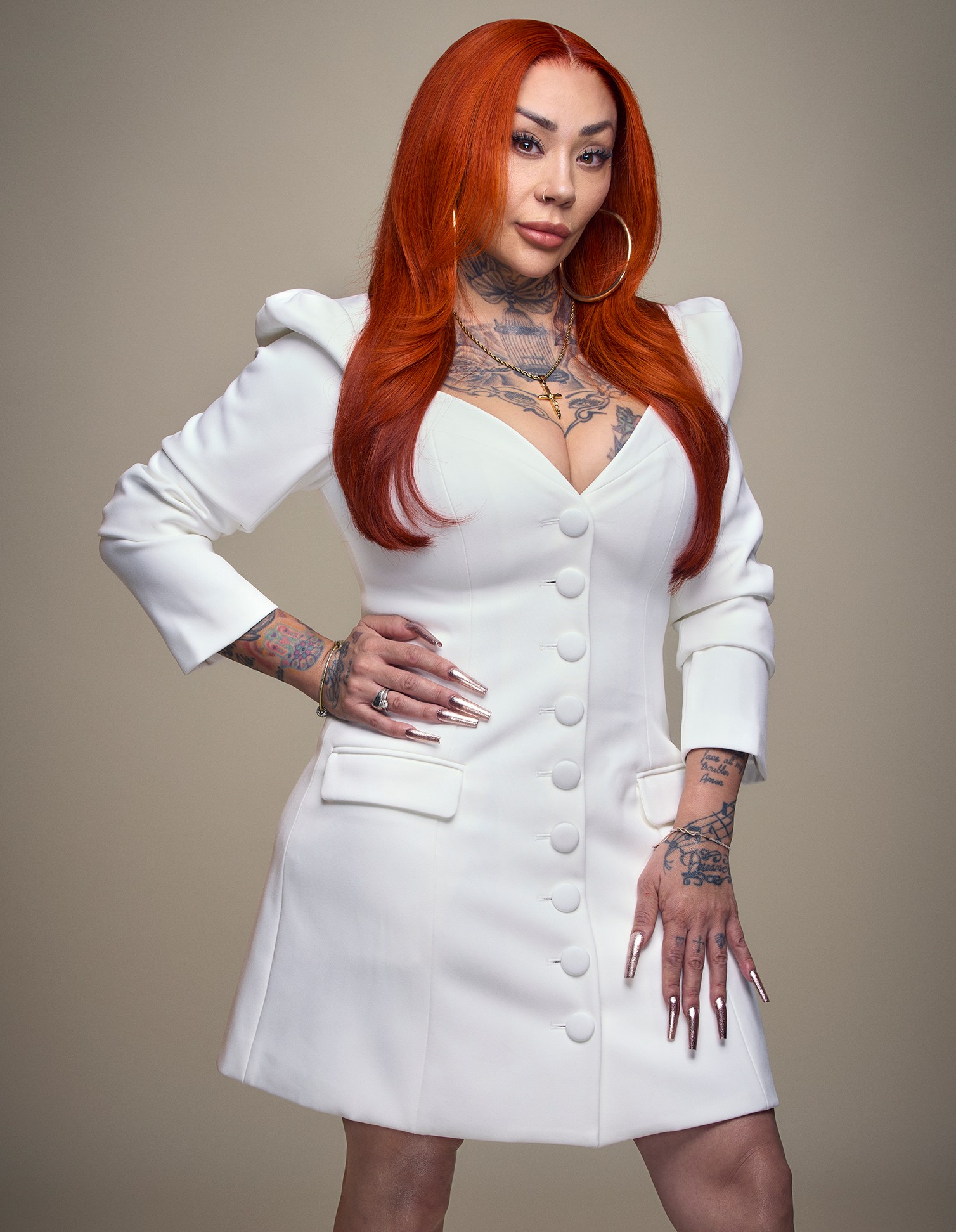
“The sad truth is that I hated myself. Back then, you just didn’t talk about abuse”
ROBERT WILSON FOR THE TMIES MAGAZINE
After that night it happened again, only this time, I knew what I was doing. I wish I could tell you how it went from being something alien to me to a conscious and deliberate action, but I just don’t know. I guess being tough on the outside meant that I was pushing all the hurt inside.
When you hear and read negative things about yourself all the time, it’s impossible not to start believing some of them deep down. After years of swallowing my pride and trying to ignore the criticism that came almost daily from the press and the public, my dislike of myself really grew. The only way I felt I could control it was to blast it with alcohol and other stuff.
When that stopped doing the trick, self-harm came to me as another option. From then on, whenever I felt pushed to my limits or like I couldn’t breathe, I’d turn to this. Soon, it became a regular thing. If I was angry, frustrated or upset, hurting myself became my way of releasing all that. In a confrontational situation or argument, I would tell people, “Don’t push me. Please don’t push me,” because I knew where it would lead.
There were times when I sat in the dark for days at a time, not wanting to eat or speak to anyone, locking myself away from the world. Some days, my sleep patterns were so off I’d sleep all day, then wake up thinking it was morning and wondering why it was dark.
There was less understanding of self-harm back then. If people heard you were doing something as drastic as that, they thought you were nuts.
Things got darker still on the photoshoot for the Angels with Dirty Faces album, our second, in Spain. I’d been taking antidepressants at the time, but for some reason I didn’t take them with me on the trip and I was suffering without them.
We were shooting by a lake in blazing sunshine and it felt like 100C, so I wasn’t overly pleased when the stylist on the shoot stuck me in a polo-neck top. I noticed with envy that Keisha and Heidi [Range, who replaced Siobhán Donaghy] were much more suitably dressed for scorching weather, and as the shoot went on I got more down about the situation.
I felt I wasn’t being treated fairly, and that thought grew. It bubbled away in my head, making me more and more pissed off. Why was I being covered up when they weren’t? Was I too fat? Did I not look as good as the other girls? Why are they dressing me like a nun?
Keisha and Heidi could see what I was doing to myself. By now, the girls were used to talking me down from situations when I was mad at the world. I just wasn’t always good at hearing them. It was never any use reassuring me that things would be OK because, in my head, things would only be OK when I said they were. Once I started to overthink things, it was almost impossible for me or anyone else to bring me back. It was like my head was exploding, and there was no stopping it.
That was what happened that day under the baking sun. The simmering thoughts boiled over. In the end, I walked away from the shoot and called my management. “I need to see a doctor,” I said. “I need some antidepressant tablets.”
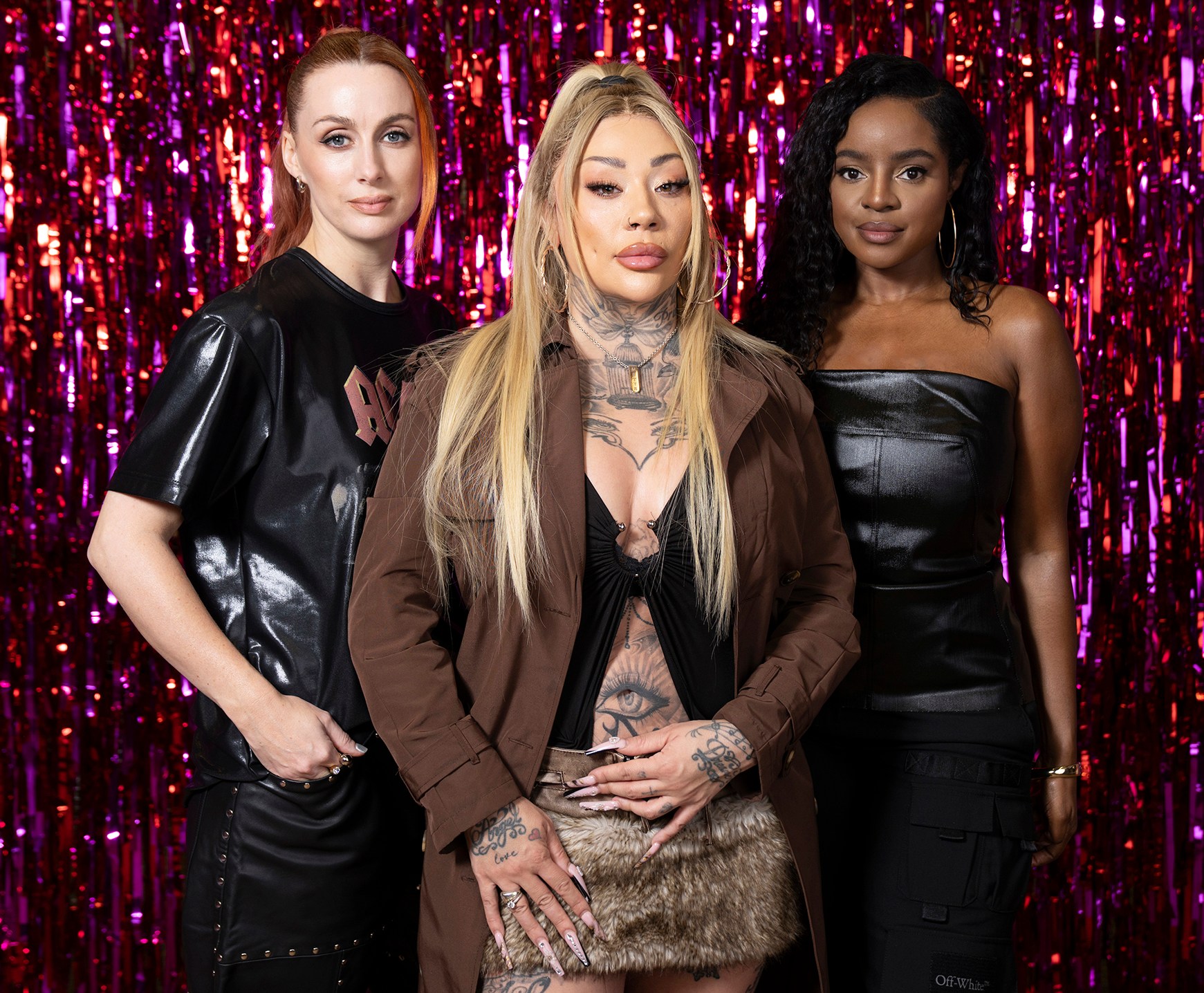
Donaghy, Buena and Buchanan for Comic Relief in March
GETTY IMAGES
“Can it wait till after the shoot?” they asked me. “No. I need to see a doctor as soon as possible.”
Someone found a private doctor who prescribed me some pills so we could go on with the shoot. It’s probably the worst thing I could have done. As some of you may know, antidepressants are not something that work instantly. It’s not like a headache tablet, where you take it and the pain disappears in a few minutes. The doctor’s advice was to take one if I was feeling low, but when I realised that one tablet wasn’t cutting it, I took another and another, desperate for an immediate result.
I was taking them in the loo and I didn’t realise how strong they were. In the end, I was popping them like crazy until everything went black. I collapsed during the shoot. I see now I should’ve told the crew I was taking them, but I didn’t think it would be an issue.
The next thing I remember is coming back into consciousness somewhere noisy. It’s a cliché but, for a moment, it was like I was looking down on myself lying in a hospital bed. I felt like I was taking in the scene from above, and I could hear people saying my name but couldn’t answer. When I came round fully, I was bruised all over, had a tube down my throat and was wondering what the f*** had happened.
I was so scared at that moment that I pulled at the tube and went berserk at the nurses, screaming and shouting at them to let me up. It took hospital security coming in with batons to restrain me. The fear had me acting crazy. I had no idea where I was or how I got there.
I certainly hadn’t been trying to end my life, but at the same time, I clearly didn’t know how to deal with what I was feeling. Thinking about it now feels strange. From what I’ve been told, I was close to dying that day. In fact, from what I heard later, they thought they’d lost me at one point. It’s one of the many things I never talk about because I’ve pushed it out of my mind, as people often do with traumatic experiences. I was always good at that — pushing things away and then forgetting they’d ever happened. I don’t like to think about how close I was to the edge.
Extracted from Real Girl by Mutya Buena (Bantam, £22), published on November 13. To order a copy go to timesbookshop.co.uk. Free UK standard P&P on orders over £25. Special discount available for Times+ members
Hair: Bukola Ogunnaike using Colour Wow Dream Cocktail and Texas Hold’em Big Hold Hairspray. Make-up: Julia Wren using Merit Beauty

